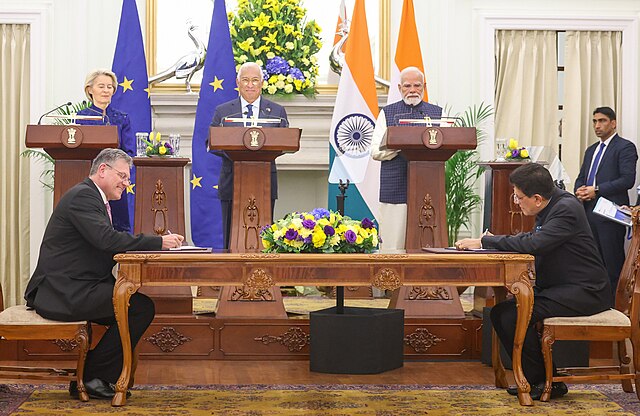The Spanish Socialist Workers Party, currently in a coalition with Podemos, had its plans to reform its public health legislation leaked to a broadcast. Included is a proposal that women who suffer extreme period pain will be able to take leave from work for three days a month, which in some cases could be extended to up to five.
The government is also preparing a law that would allow 16 and 17 year olds to access abortions without needing permission from their parents.
Cadena SER, who first reported the proposals, accessed sections of the draft legislative plan that is due to be presented to the cabinet early next Tuesday. Cadena SER asserted that the Ministry of Equality is behind the proposed bill.
However, José Luis Escrivá, Spain’s Inclusion, Social security, and Migration minister tempered expectations by stressing that the proposal was a draft that is still ‘under discussion’ in the coalition government.
Although several private companies across Europe have adopted period policies and period leave was discussed in Italy in 2016, if passed, this legislation would make Spain the first country in Europe to give women the right to take menstrual leave and mark a significant advance in women’s public health legislation.
Spain’s Gynaecology and Obstetrics society have stated that almost a third of women suffer from severe pain known as Dysmenorrhea . Dysmenorrhea is the severe abdominal pain and cramps some women experience on their periods. Other symptoms include headaches, diarrhoea, and fever.
Angela Rodriguez, Spain’s Secretary of state for Equality told El Periódico in March:
🗣️"If someone has an illness with such symptoms a temporary disability is granted, so the same should happen with menstruation – allowing a woman with a very painful period to stay at home," Angela Rodriguez, the secretary of state for equality has said pic.twitter.com/e5yEurs9fo
— Telegraph Life (@TelegraphLife) May 11, 2022
In its plans for menstrual leave, Spain joins only a handful of countries who have already granted menstrual leave to their citizens: Japan, South Korea and Indonesia, and Zambia. However, the extent to which period leave allowance has been used in these countries is debated.
Proposed changes to abortion laws and sanitary products, but raises questions.
The same reform package also includes plans to make abortion more widely available by removing the requirement for parental permission for over 16-year-olds. This legislation would guarantee all over the age of 16 to access abortions in public hospitals, and replace a 2015 measure, introduced by the conservative People’s party, which requires women aged 16 and 17 to obtain parental consent for abortions, and do away with the three -day ‘period of reflection’ for those seeking a termination currently imposed in Spain.
Abortion in Spain is currently available until 14 weeks. It is a divisive issue as Spain is largely catholic, and so many areas are currently no abortion zones because of opt-out policies under which doctors can refuse to practice abortions on ethical grounds.
In these areas, women currently often have to travel far to find a public hospital that will permit them to have an abortion.
The proposed legislation, which is being referred to as the ‘Law for the Protection of Sexual and Reproductive Rights and Guaranteeing of the Voluntary Termination of Pregnancies’, will however continue to respect Roman Catholic preferences by introducing an official register for the staff who wish to opt out of involvement in abortion.
Spain’s Equality minister, Irene Montero told El Diario in February:
“It is this government’s duty and its intention to safeguard the right to abortion in the public health system and do away with the obstacles that prevent women from deciding when it comes to their bodies and their lives. The voluntary termination of a pregnancy will be guaranteed in all public hospitals. For that to happen, all centres with obstetrics and gynaecology services will need to have staff who guarantee the right to voluntary termination of a pregnancy. We will scrupulously respect the right to conscientious objection, and we will make it thoroughly compatible with women’s right to decide when it comes to their bodies.”
This move would tie in with the Spanish government recently making it a criminal offence to harass or intimidate women into impending their right to abortion, such as in protests outside abortion clinics.
In addition, the proposed legislation would include tighter rules around surrogacy, which is currently banned in Spain, as well as the provision of sanitary items for women in marginalised social circumstances. Other measures to improve menstrual health include having VAT removed from sanitary items and extended paid maternity leave before childbirth.
These reforms follow long standing demands for more extended and fairer treatment for women in Spain, as seen in protests that took place across Spain in 2021.
Spain being the first country with such legal entitlement in Europe could thus pave the way towards establishing the importance of menstrual health, helping it to gain greater recognition on a global scale.
In 2018, menstrual health was confirmed at the United Nations Commission on the Status of Women to the High Level Political Forum as a topic integral to human rights and the sustainable development agendas. Discussion of menstrual health problems in high level forums is therefore important for informing and incentivising national policymaking and thus encouraging other nations to adopt comprehensive menstrual health policies and programs. The importance of women’s health for equality and human rights means that legislation surrounding it must be continually improved. The inclusion of menstrual health in the SDG agenda is one way of stimulating improvement.
Hopefully other countries will be inspired to seize the momentum Spain has built up on the topic of menstrual health and stimulate innovative solutions to problems regarding female health worldwide and in poorer regions.
However, news of these proposed reforms is not without its critics, and the topic has introduced debate over whether this will ‘help or hinder’ women in the workplace.
One of Spain’s major labour unions has said the laws could lead to women facing workplace discrimination.
“I’m not sure if we’re doing a disservice to us women, the idea that women required time off work while menstruating risks stigmatising women”
Cristina Antoñanzas of the General Union of Workers told Cadena Ser.
We know that the legislation would not apply to those who suffer mild discomfort but to a medically recognized condition, following Montero’s statement to El Periódico newspaper that
“It’s important to be clear about what we mean by painful period. We’re not talking about a slight discomfort, but about serious symptoms such as diarrhoea, fever and bad headaches”
There's a big difference between having period leave available, and actually feeling like you can use it. I looked at the effectiveness of policies like the one Spain is set to do: https://t.co/W4Do1JxMcN
— Monica Torres (@monicatorrr) May 12, 2022
Yet, as this legislation is still under discussion certain aspects are still unclear, such as whether menstrual leave would be paid, whether employees would have to make up hours, and whether women would have to show their symptoms. There are other issues surrounding the legislation regarding taking time off, whether the policy could be exploited, inclusivity concerns involving transgender men, and how period pain would be ‘proved’.
Nevertheless, for some the policy is overdue.
Si los hombres tuviéramos la regla esa baja habría llegado hace décadas. Ese es el problema.
— Íñigo Errejón (@ierrejon) May 12, 2022
“If we men had periods, this leave would have come decades ago. That is the problem.”
Íñigo Errejón, leader of the left-wing party Más País.
Accordingly, a handful of local Spanish governments have already embraced the idea. In June 2021, the City Council of Girona said it would allow its employees up to eight hours of menstrual leave a month and up to three months to make up any time used, in order to eliminate the taboo that exists around menstruation and the pain some women suffer. Similar policies were adopted for workers in the municipalities of Ripoll, Les Borges Blanques, and Castellón de la Plana.
Such debate is to be expected of most new public health measures, and whilst all opinions on the matter are valid, for the many women who have suffered in silence over painful periods, the news is welcome.
Although responses on Twitter to the proposed reforms are indicative of a very mixed reception, in a time where female reproductive rights are at threat in the US, it is exciting to see a country responding to demands and taking female health initiatives seriously. The proposals and public discussion they have sparked also marks an encouraging shift away from viewing menstrual health problems, what are familiarly called ‘periods,’ as a secretive, ‘taboo’ topic, to one discussed fruitfully and openly.
Editor’s Note: The opinions expressed here by Impakter.com columnists are their own, not those of Impakter.com. — In the Featured Photo: International Women’s Day Protest in Spain, 2022. Featured Photo Credit: Wikimedia Commons.













